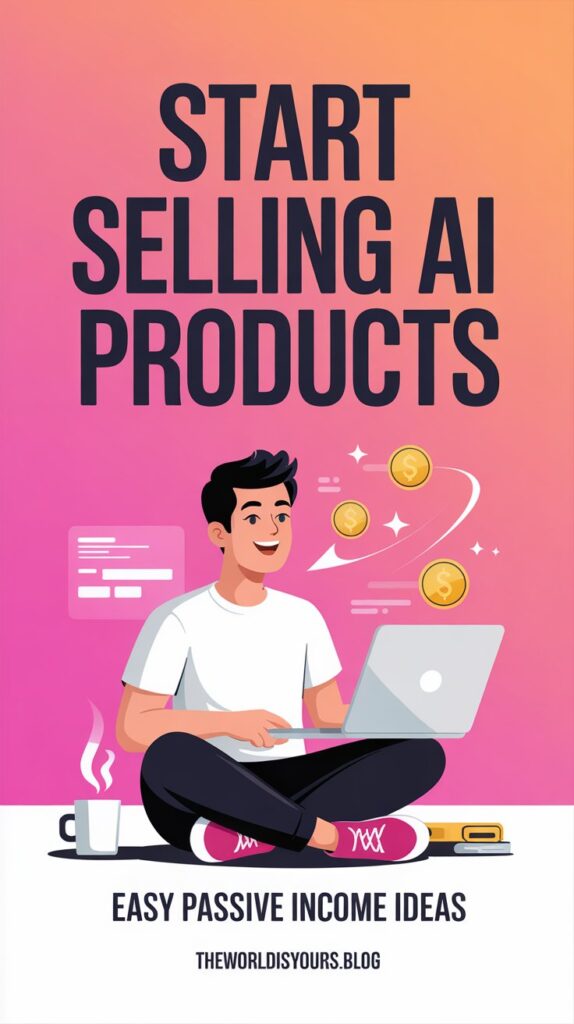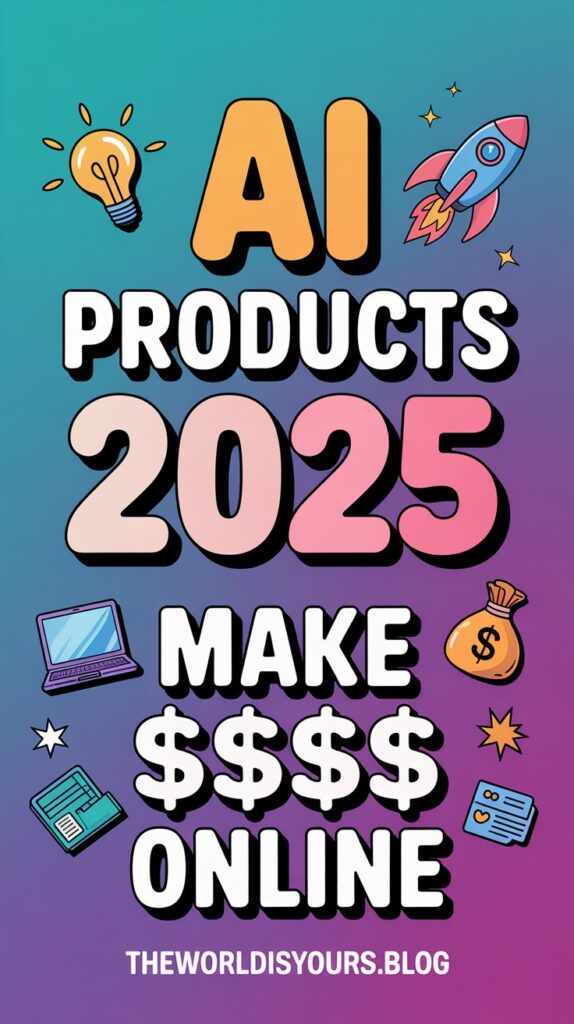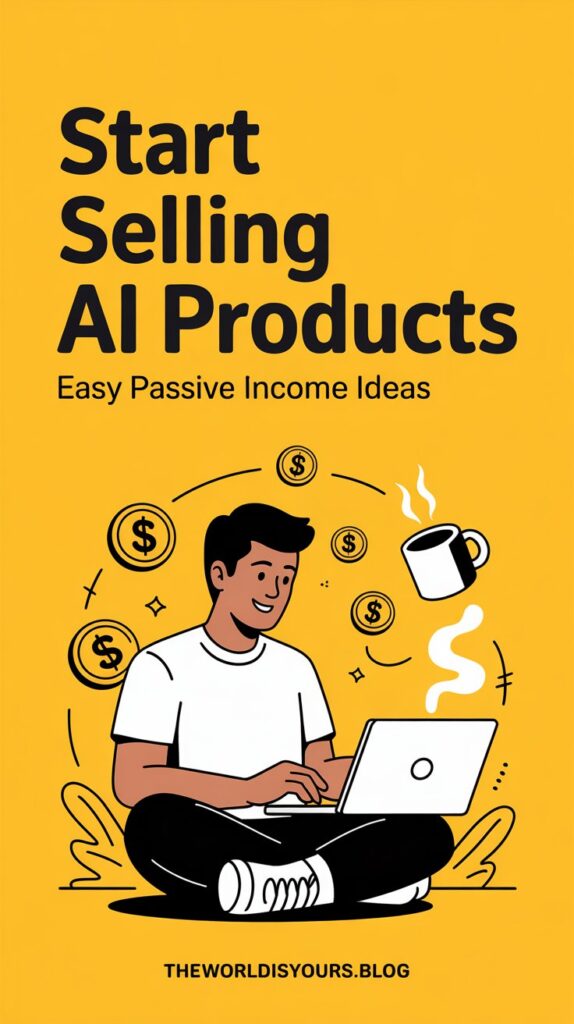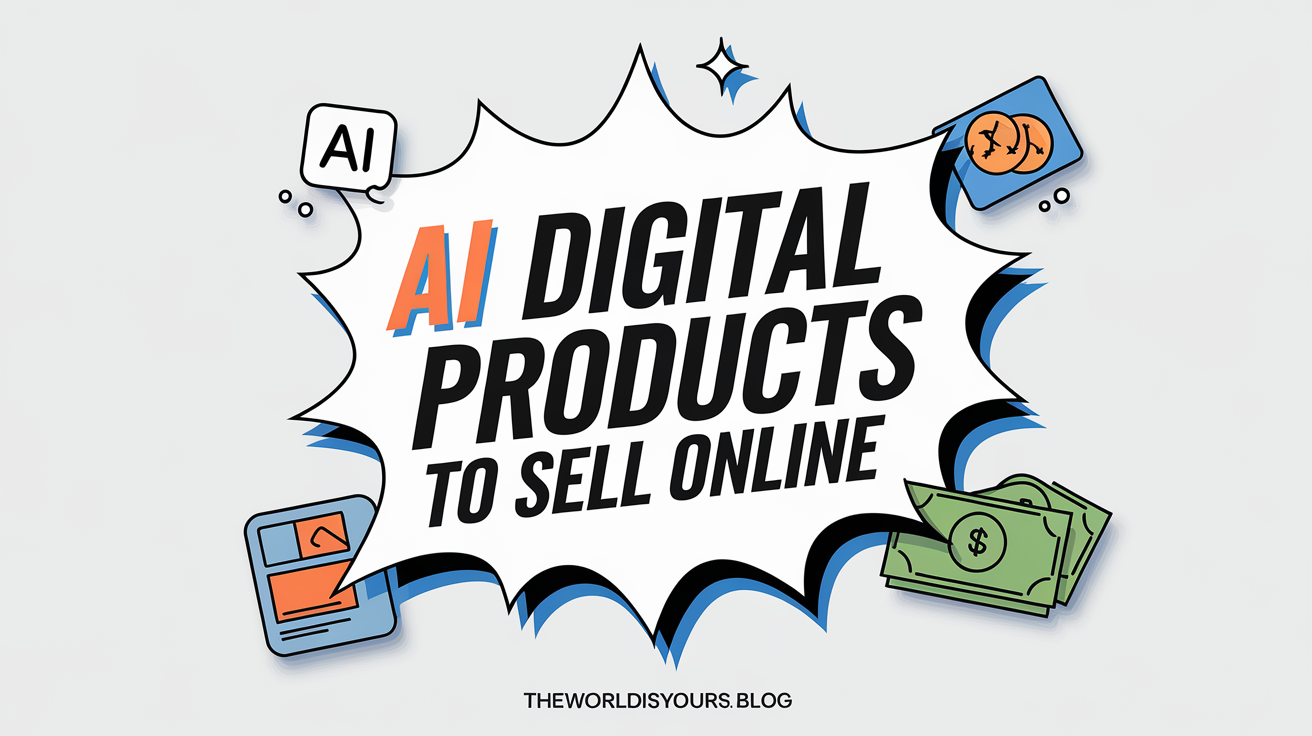Thinking about starting an online business but stuck on what to sell? You’re not alone. The good news: AI digital products are basically the online business gold rush right now. They’re cheap to make, easy to scale, and—if you play your cards right—they can bring in that sweet passive income while you binge Netflix.
To put things in perspective:
- Digital commerce is expected to hit $12.93 trillion by 2029.
- E-learning alone could reach $840 billion by 2030.
- People are happily throwing money at AI-powered courses, ebooks, and tools.
I’ve seen it firsthand—my friend made $12K in her first month selling AI-designed planners, and another person I know cleared $8K in a week with a simple photography course. Point is: the market’s booming, and it’s only getting hotter.
So, let’s break down the 8 best AI digital products to sell in 2025 and how you can cash in.

1. AI-Powered Online Courses & Ebooks
If you know anything useful, AI can help you package it into a slick ebook or course—fast. No design degree needed.
- Courses on AI, data science, or even niche hobbies can sell like crazy.
- Ebooks are still big, especially when AI helps with editing, design, and formatting.
- Pro tip: Bundle ebooks with mini-courses for extra value (and extra $$$).
Why it works: People want to learn, and they’ll happily pay for shortcuts that save them time.
2. AI Content Creation Tools
Writers, marketers, and business owners are obsessed with saving time (guilty ✋). That’s why AI writing and design tools are blowing up.
Some hot tools to know:
- ChatGPT & Claude → text + code creation
- MidJourney & Canva → graphics that look designer-made
- Descript & InVideo → video and audio editing with zero headaches
Why it works: Businesses get pro-level content without hiring freelancers, and creators churn out more in less time. Win-win.
3. Machine Learning Models & Datasets
Not as “sexy” sounding as ebooks, but trust me, this niche is a goldmine.
- Developers, startups, and researchers pay big for pre-trained models and curated datasets.
- Models like YOLOv8 or ResNet are already popular, but there’s always demand for niche-specific stuff (healthcare, finance, etc.).
Why it works: Companies want AI without spending years (and millions) training it themselves. You provide the shortcut.

4. AI Business Automation Tools
AI is basically the new intern—except it doesn’t complain or take lunch breaks.
Examples include:
- Customer service chatbots
- Marketing automation tools
- AI-powered analytics dashboards
Why it works: Businesses want to cut costs, increase efficiency, and scale faster. You give them the tools to do that.
5. DIY AI Digital Products (Perfect for Etsy & Gumroad)
This is where things get fun. You can use AI to whip up:
- Printable coloring books
- Montessori activities for kids
- AI-designed planners
- Niche paid newsletters
Why it works: These products are quick to make, cheap to sell, and often bring in repeat customers. One solid digital planner can pay your rent for months.
6. AI Pricing Models & Subscription Products
Okay, this isn’t a “product” but more of a strategy—and it’s powerful.
Instead of one-time sales, think monthly subscriptions:
- SaaS tools (like Canva or Jasper)
- Membership communities
- Paid content libraries
Why it works: Predictable income > chasing random one-off sales. Plus, customers love the idea of “ongoing value.”

7. Marketing AI Products (How to Sell Them)
You’ve got the product… now how do you get eyeballs on it?
The fastest ways right now:
- Social media → TikTok, YouTube Shorts, Insta reels.
- Email marketing → cheap, targeted, and great for repeat buyers.
- Influencers → borrow their audience until you grow your own.
- Content marketing → blogs, videos, and tutorials that show you’re an expert.
Why it works: Visibility = sales. Even the best AI tool is useless if nobody knows it exists.
8. Legal Stuff You Can’t Ignore
Before you go full throttle, cover your bases:
- Copyrights & trademarks → don’t sell someone else’s IP.
- Data protection → GDPR/CCPA are no joke.
- Terms of service → outline what users can and can’t do with your product.
Why it works: You’d rather spend time selling than fighting legal battles. Trust me.
Wrapping It Up: Why You Should Jump on This Now
The AI digital product market is on fire—expected to hit $1.39 trillion by 2029. That’s insane growth, and it’s only the beginning.
The best part? You don’t need to be a Silicon Valley genius. With AI tools, anyone can create and sell digital products. Start small (like an ebook or a planner), test what works, and scale from there.
So yeah, if you’ve been sleeping on this, now’s the time to wake up and give it a shot. Trust me—you’ll thank yourself later. 😉
